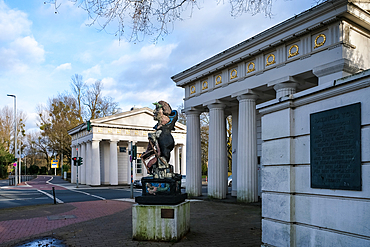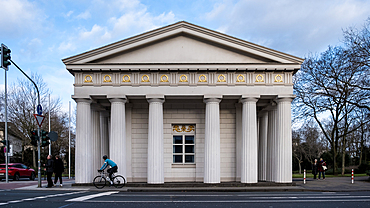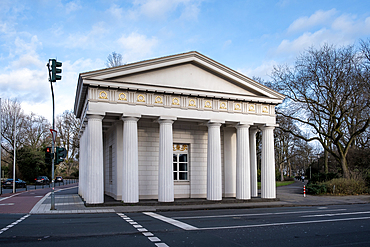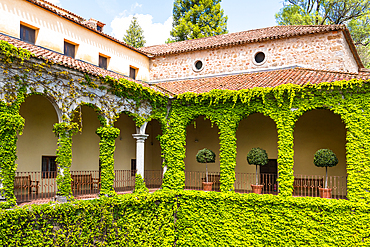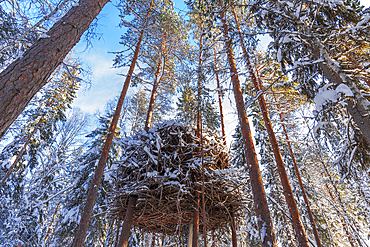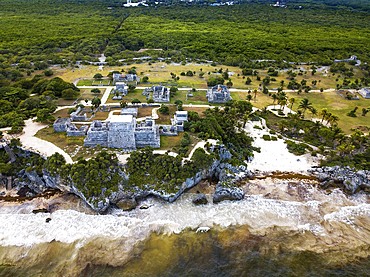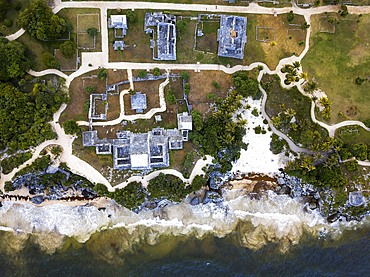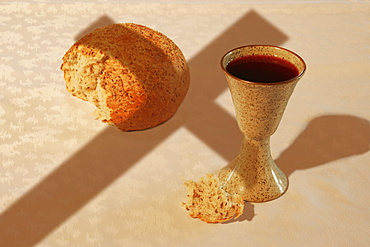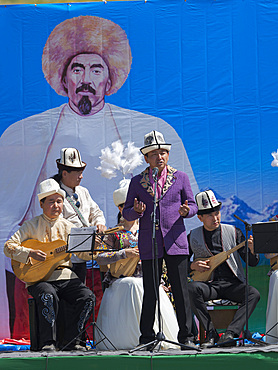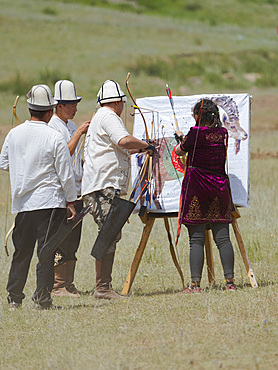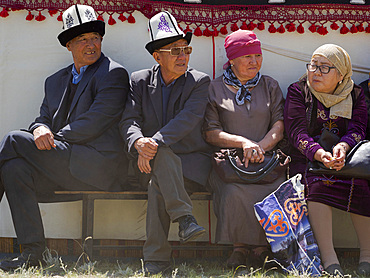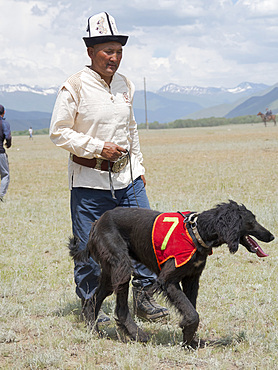Recent searches
Loading...
1353-723 - Last Light on Ben More and the Crianlarich Hills in winter, Loch Lomond & Trossachs National Park, Scottish Highlands, Scotland, UK
1353-722 - Last Light on Ben Lui across Loch Awe at dusk, Loch Awe, Argyll and Bute, Scottish Highlands, Scotland, UK
1383-98 - The Kulamba Traditional Ceremony of the Chewa people takes place every year on the last Saturday in August near Katete. The Chewa who also live in Mozambique and Malawi come to pay homage to their Chief Kalonga Gaia Uni.
1383-96 - The Kulamba Traditional Ceremony of the Chewa people takes place every year on the last Saturday in August near Katete. The Chewa who also live in Mozambique and Malawi come to pay homage to their Chief Kalonga Gaia Uni.
1383-97 - The Kulamba Traditional Ceremony of the Chewa people takes place every year on the last Saturday in August near Katete. The Chewa who also live in Mozambique and Malawi come to pay homage to their Chief Kalonga Gaia Uni.
1383-95 - The Kulamba Traditional Ceremony of the Chewa people takes place every year on the last Saturday in August near Katete. The Chewa who also live in Mozambique and Malawi come to pay homage to their Chief Kalonga Gaia Uni.
1383-94 - The Kulamba Traditional Ceremony of the Chewa people takes place every year on the last Saturday in August near Katete. The Chewa who also live in Mozambique and Malawi come to pay homage to their Chief Kalonga Gaia Uni.
1383-92 - The Kulamba Traditional Ceremony of the Chewa people takes place every year on the last Saturday in August near Katete. The Chewa who also live in Mozambique and Malawi come to pay homage to their Chief Kalonga Gaia Uni.
1383-93 - The Kulamba Traditional Ceremony of the Chewa people takes place every year on the last Saturday in August near Katete. The Chewa who also live in Mozambique and Malawi come to pay homage to their Chief Kalonga Gaia Uni.
1383-91 - The Kulamba Traditional Ceremony of the Chewa people takes place every year on the last Saturday in August near Katete. The Chewa who also live in Mozambique and Malawi come to pay homage to their Chief Kalonga Gaia Uni.
1383-90 - The Kulamba Traditional Ceremony of the Chewa people takes place every year on the last Saturday in August near Katete. The Chewa who also live in Mozambique and Malawi come to pay homage to their Chief Kalonga Gaia Uni.
1383-89 - The Kulamba Traditional Ceremony of the Chewa people takes place every year on the last Saturday in August near Katete. The Chewa who also live in Mozambique and Malawi come to pay homage to their Chief Kalonga Gaia Uni.
1383-88 - The Kulamba Traditional Ceremony of the Chewa people takes place every year on the last Saturday in August near Katete. The Chewa who also live in Mozambique and Malawi come to pay homage to their Chief Kalonga Gaia Uni.
1383-87 - The Kulamba Traditional Ceremony of the Chewa people takes place every year on the last Saturday in August near Katete. The Chewa who also live in Mozambique and Malawi come to pay homage to their Chief Kalonga Gaia Uni.
1383-86 - The Kulamba Traditional Ceremony of the Chewa people takes place every year on the last Saturday in August near Katete. The Chewa who also live in Mozambique and Malawi come to pay homage to their Chief Kalonga Gaia Uni.
1383-85 - The Kulamba Traditional Ceremony of the Chewa people takes place every year on the last Saturday in August near Katete. The Chewa who also live in Mozambique and Malawi come to pay homage to their Chief Kalonga Gaia Uni.
1383-83 - The Kulamba Traditional Ceremony of the Chewa people takes place every year on the last Saturday in August near Katete. The Chewa who also live in Mozambique and Malawi come to pay homage to their Chief Kalonga Gaia Uni.
1383-84 - The Kulamba Traditional Ceremony of the Chewa people takes place every year on the last Saturday in August near Katete. The Chewa who also live in Mozambique and Malawi come to pay homage to their Chief Kalonga Gaia Uni.
1383-82 - The Kulamba Traditional Ceremony of the Chewa people takes place every year on the last Saturday in August near Katete. The Chewa who also live in Mozambique and Malawi come to pay homage to their Chief Kalonga Gaia Uni.
1383-81 - The Kulamba Traditional Ceremony of the Chewa people takes place every year on the last Saturday in August near Katete. The Chewa who also live in Mozambique and Malawi come to pay homage to their Chief Kalonga Gaia Uni.
1383-80 - The Kulamba Traditional Ceremony of the Chewa people takes place every year on the last Saturday in August near Katete. The Chewa who also live in Mozambique and Malawi come to pay homage to their Chief Kalonga Gaia Uni.
1383-79 - The Kulamba Traditional Ceremony of the Chewa people takes place every year on the last Saturday in August near Katete. The Chewa who also live in Mozambique and Malawi come to pay homage to their Chief Kalonga Gaia Uni.
1383-77 - The Kulamba Traditional Ceremony of the Chewa people takes place every year on the last Saturday in August near Katete. The Chewa who also live in Mozambique and Malawi come to pay homage to their Chief Kalonga Gaia Uni.
1383-78 - The Kulamba Traditional Ceremony of the Chewa people takes place every year on the last Saturday in August near Katete. The Chewa who also live in Mozambique and Malawi come to pay homage to their Chief Kalonga Gaia Uni.
1383-76 - The Kulamba Traditional Ceremony of the Chewa people takes place every year on the last Saturday in August near Katete. The Chewa who also live in Mozambique and Malawi come to pay homage to their Chief Kalonga Gaia Uni.
1383-75 - The Kulamba Traditional Ceremony of the Chewa people takes place every year on the last Saturday in August near Katete. The Chewa who also live in Mozambique and Malawi come to pay homage to their Chief Kalonga Gaia Uni.
1383-74 - The Kulamba Traditional Ceremony of the Chewa people takes place every year on the last Saturday in August near Katete. The Chewa who also live in Mozambique and Malawi come to pay homage to their Chief Kalonga Gaia Uni.
1383-73 - The Kulamba Traditional Ceremony of the Chewa people takes place every year on the last Saturday in August near Katete. The Chewa who also live in Mozambique and Malawi come to pay homage to their Chief Kalonga Gaia Uni.
1383-72 - The Kulamba Traditional Ceremony of the Chewa people takes place every year on the last Saturday in August near Katete. The Chewa who also live in Mozambique and Malawi come to pay homage to their Chief Kalonga Gaia Uni.
1383-71 - The Kulamba Traditional Ceremony of the Chewa people takes place every year on the last Saturday in August near Katete. The Chewa who also live in Mozambique and Malawi come to pay homage to their Chief Kalonga Gaia Uni.
1383-70 - The Kulamba Traditional Ceremony of the Chewa people takes place every year on the last Saturday in August near Katete. The Chewa who also live in Mozambique and Malawi come to pay homage to their Chief Kalonga Gaia Uni.
1383-69 - The Kulamba Traditional Ceremony of the Chewa people takes place every year on the last Saturday in August near Katete. The Chewa who also live in Mozambique and Malawi come to pay homage to their Chief Kalonga Gaia Uni.
1383-67 - The Kulamba Traditional Ceremony of the Chewa people takes place every year on the last Saturday in August near Katete. The Chewa who also live in Mozambique and Malawi come to pay homage to their Chief Kalonga Gaia Uni.
1383-66 - The Kulamba Traditional Ceremony of the Chewa people takes place every year on the last Saturday in August near Katete. The Chewa who also live in Mozambique and Malawi come to pay homage to their Chief Kalonga Gaia Uni.
1383-65 - The Kulamba Traditional Ceremony of the Chewa people takes place every year on the last Saturday in August near Katete. The Chewa who also live in Mozambique and Malawi come to pay homage to their Chief Kalonga Gaia Uni.
1383-63 - The Kulamba Traditional Ceremony of the Chewa people takes place every year on the last Saturday in August near Katete. The Chewa who also live in Mozambique and Malawi come to pay homage to their Chief Kalonga Gaia Uni.
1383-64 - The Kulamba Traditional Ceremony of the Chewa people takes place every year on the last Saturday in August near Katete. The Chewa who also live in Mozambique and Malawi come to pay homage to their Chief Kalonga Gaia Uni.
1383-62 - The Kulamba Traditional Ceremony of the Chewa people takes place every year on the last Saturday in August near Katete. The Chewa who also live in Mozambique and Malawi come to pay homage to their Chief Kalonga Gaia Uni.
1383-61 - The Kulamba Traditional Ceremony of the Chewa people takes place every year on the last Saturday in August near Katete. The Chewa who also live in Mozambique and Malawi come to pay homage to their Chief Kalonga Gaia Uni.
1383-60 - The Kulamba Traditional Ceremony of the Chewa people takes place every year on the last Saturday in August near Katete. The Chewa who also live in Mozambique and Malawi come to pay homage to their Chief Kalonga Gaia Uni.
1383-59 - The Kulamba Traditional Ceremony of the Chewa people takes place every year on the last Saturday in August near Katete. The Chewa who also live in Mozambique and Malawi come to pay homage to their Chief Kalonga Gaia Uni.
1383-58 - The Kulamba Traditional Ceremony of the Chewa people takes place every year on the last Saturday in August near Katete. The Chewa who also live in Mozambique and Malawi come to pay homage to their Chief Kalonga Gaia Uni.
1383-57 - The Kulamba Traditional Ceremony of the Chewa people takes place every year on the last Saturday in August near Katete. The Chewa who also live in Mozambique and Malawi come to pay homage to their Chief Kalonga Gaia Uni.
1383-56 - The Kulamba Traditional Ceremony of the Chewa people takes place every year on the last Saturday in August near Katete. The Chewa who also live in Mozambique and Malawi come to pay homage to their Chief Kalonga Gaia Uni.
1383-55 - The Kulamba Traditional Ceremony of the Chewa people takes place every year on the last Saturday in August near Katete. The Chewa who also live in Mozambique and Malawi come to pay homage to their Chief Kalonga Gaia Uni.
1383-54 - The Kulamba Traditional Ceremony of the Chewa people takes place every year on the last Saturday in August near Katete. The Chewa who also live in Mozambique and Malawi come to pay homage to their Chief Kalonga Gaia Uni.
1383-53 - The Kulamba Traditional Ceremony of the Chewa people takes place every year on the last Saturday in August near Katete. The Chewa who also live in Mozambique and Malawi come to pay homage to their Chief Kalonga Gaia Uni.
1383-5 - Shiwa Ng'andu House was built in the last centuary by Sir Stuart Gore-Browne. A book called 'Afica House' featured this English style estate in Muchinga Province, Zambia. Still owned by the family it offers excellent accomodation for the visitor.
1383-3 - Shiwa Ng'andu House was built in the last centuary by Sir Stuart Gore-Browne. A book called 'Afica House' featured this English style estate in Muchinga Province, Zambia. Still owned by the family it offers excellent accomodation for the visitor.
1383-4 - Shiwa Ng'andu House was built in the last centuary by Sir Stuart Gore-Browne. A book called 'Afica House' featured this English style estate in Muchinga Province, Zambia. Still owned by the family it offers excellent accomodation for the visitor.
1383-2 - Shiwa Ng'andu House was built in the last centuary by Sir Stuart Gore-Browne. A book called 'Afica House' featured this English style estate in Muchinga Province, Zambia. Still owned by the family it offers excellent accomodation for the visitor.
1383-1 - Shiwa Ng'andu House was built in the last centuary by Sir Stuart Gore-Browne. A book called 'Afica House' featured this English style estate in Muchinga Province, Zambia. Still owned by the family it offers excellent accomodation for the visitor.
1353-706 - Last light on Clachaig Falls backed by Aonach Eagach and Meal Dearg in winter, Glencoe, Scottish Highlands, Scotland, UK
1373-309 - View of the Ratinger Tor, a customs gate that was built between 1811 and 1815 in the classicist style, the last built and only remaining city gate in the original city of Düsseldorf.
1373-308 - View of the Ratinger Tor, a customs gate that was built between 1811 and 1815 in the classicist style, the last built and only remaining city gate in the original city of Düsseldorf.
1373-307 - View of the Ratinger Tor, a customs gate that was built between 1811 and 1815 in the classicist style, the last built and only remaining city gate in the original city of Düsseldorf.
1353-581 - Last light on The Amalienborg Palace, Amalienborg Square, Copenhagen, Denmark, Europe
1353-555 - Last light on Yr Aran in winter from Rhyd Ddu, Snowdonia National Park, Eryri, North Wales, UK
1352-154 - Cloisters of Monasterio de San Jeronimo de Yuste, a monastery founded by the Hieronymite order of monks in 1402 and the last resting place of Emperor Charles V, near small village Cuacos de Yuste, Caceres, Extremadura, Spain, Europe
1361-336 - The nest, the new concept of the last accommodation on top of trees of the Tree Hotel in Harads, winter view, Norrbotten county, Swedish Lapland, Sweden, Scandinavia, Europe
832-402237 - House with sign, The First and Last House, Lands End, Penzance, Penwith Peninsula, Cornwall, England, United Kingdom, Europe
1336-896 - Bardenas Reales rock formation in the badlands, illuminated with the last sunset light, Navarre, Spain, Europe
1353-404 - Last light on Tryfan viewed from Glyder Fach, The Glyderau, Snowdonia National Park, Eryri, North Wales, United Kingdom, Europe
1350-6597 - Aerial views of El Castillo and the Ruins of the Mayan temple grounds at Tulum, Quintana Roo, Yucatan, Mexico. Tulum is the site of a pre-Columbian Mayan walled city which served as a major port for Coba, in the Mexican state of Quintana Roo. The ruins are situated on 12 meter 39 ft tall cliffs along the east coast of the Yucatán Peninsula on the Caribbean Sea in the state of Quintana Roo, Mexico. Tulum was one of the last cities built and inhabited by the Maya; it was at its height between the 13th and 15th centuries and managed to survive about 70 years after the Spanish began occupying Mexico. Old World diseases brought by the Spanish settlers appear to have resulted in very high fatalities, disrupting the society, and eventually causing the city to be abandoned.
1350-6599 - Aerial views of El Castillo and the Ruins of the Mayan temple grounds at Tulum, Quintana Roo, Yucatan, Mexico. Tulum is the site of a pre-Columbian Mayan walled city which served as a major port for Coba, in the Mexican state of Quintana Roo. The ruins are situated on 12 meter 39 ft tall cliffs along the east coast of the Yucatán Peninsula on the Caribbean Sea in the state of Quintana Roo, Mexico. Tulum was one of the last cities built and inhabited by the Maya; it was at its height between the 13th and 15th centuries and managed to survive about 70 years after the Spanish began occupying Mexico. Old World diseases brought by the Spanish settlers appear to have resulted in very high fatalities, disrupting the society, and eventually causing the city to be abandoned.
746-92185 - Historical reenactment of the Passion of Christ of Mogliano, Last Supper, Marche, Italy, Europe
746-92164 - The Sartiglia is a race to the star that takes place on the last Sunday and Tuesday of Carnival in Oristano, Sardinia, Italy, Europe
746-92163 - The Sartiglia is a race to the star that takes place on the last Sunday and Tuesday of Carnival in Oristano, Sardinia, Italy, Europe
746-91776 - End of the match. Kok Boru (Buzkashi), traditional equestrian team sport. Festival on the Suusamyr plain commemorating Mr Koshkomul, a sportsman and folk hero of the last century. Kok Boru is listed as UNESCO Intangible Cultural Heritage Asia, central asia, Kyrgyzstan
746-91675 - Kuresh, traditional Kyrgyz wrestling. Folk and Sport festival on the Suusamyr plain commemorating Mr Koshomkul, a sportsman and folk hero of the last century. Asia, central Asia, Kyrgyzstan
746-91740 - Girls of folk music band posing for visitors and photographers. Folk and Sport festival on the Suusamyr plain commemorating Mr Koshomkul, a sportsman and folk hero of the last century. Asia, central asia, Kyrgyzstan
746-91678 - Greeting at the beginning of a fight. Kuresh, traditional Kyrgyz wrestling. Folk and Sport festival on the Suusamyr plain commemorating Mr Koshomkul, a sportsman and folk hero of the last century. Asia, central Asia, Kyrgyzstan
746-91674 - Kuresh, traditional Kyrgyz wrestling. Folk and Sport festival on the Suusamyr plain commemorating Mr Koshomkul, a sportsman and folk hero of the last century. Asia, central Asia, Kyrgyzstan
746-91754 - Setting up a traditional Yurt. Folk and Sport festival on the Suusamyr plain commemorating Mr Koshomkul, a sportsman and folk hero of the last century. Asia, central asia, Kyrgyzstan
746-91735 - Musician in traditional garment. Folk and Sport festival on the Suusamyr plain commemorating Mr Koshomkul, a sportsman and folk hero of the last century. Asia, central asia, Kyrgyzstan
746-91774 - The goat is thrown into tai kazan (goal). Kok Boru (Buzkashi), traditional equestrian team sport. Festival on the Suusamyr plain commemorating Mr Koshkomul, a sportsman and folk hero of the last century. Kok Boru is listed as UNESCO Intangible Cultural Heritage Asia, central asia, Kyrgyzstan
746-91699 - The referee. Er Enish or Oodarysh, wrestling from horseback, a traditional equestrian sport. Folk and Sport festival on the Suusamyr plain commemorating Mr Koshomkul, a sportsman and folk hero of the last century. Asia, central Asia, Kyrgyzstan
746-91738 - Girls of folk music band posing for visitors and photographers. Folk and Sport festival on the Suusamyr plain commemorating Mr Koshomkul, a sportsman and folk hero of the last century. Asia, central asia, Kyrgyzstan
746-91665 - At Chabysh, a long distance horse race. To reduce weight often no saddle is used and the riders are often young boys. Folk and Sport festival on the Suusamyr plain commemorating Mr Koshomkul, a sportsman and folk hero of the last century. Asia, central Asia, Kyrgyzstan
746-91669 - Lifting of a horse. Folk and Sport festival on the Suusamyr plain commemorating Mr Koshomkul, a sportsman and folk hero of the last century. Asia, central Asia, Kyrgyzstan
746-91747 - Traditional Yurt. Folk and Sport festival on the Suusamyr plain commemorating Mr Koshomkul, a sportsman and folk hero of the last century. Asia, central asia, Kyrgyzstan
746-91693 - Er Enish or Oodarysh, wrestling from horseback, a traditional equestrian sport. Folk and Sport festival on the Suusamyr plain commemorating Mr Koshomkul, a sportsman and folk hero of the last century. Asia, central Asia, Kyrgyzstan
746-91695 - Er Enish or Oodarysh, wrestling from horseback, a traditional equestrian sport. Folk and Sport festival on the Suusamyr plain commemorating Mr Koshomkul, a sportsman and folk hero of the last century. Asia, central Asia, Kyrgyzstan
746-91767 - Kok Boru (Buzkashi), traditional equestrian team sport. Festival on the Suusamyr plain commemorating Mr Koshkomul, a sportsman and folk hero of the last century. Kok Boru is listed as UNESCO Intangible Cultural Heritage Asia, central asia, Kyrgyzstan
746-91673 - Kuresh, traditional Kyrgyz wrestling. Folk and Sport festival on the Suusamyr plain commemorating Mr Koshomkul, a sportsman and folk hero of the last century. Asia, central Asia, Kyrgyzstan
746-91746 - Traditional Yurt. Folk and Sport festival on the Suusamyr plain commemorating Mr Koshomkul, a sportsman and folk hero of the last century. Asia, central asia, Kyrgyzstan
746-91691 - Er Enish or Oodarysh, wrestling from horseback, a traditional equestrian sport. Folk and Sport festival on the Suusamyr plain commemorating Mr Koshomkul, a sportsman and folk hero of the last century. Asia, central Asia, Kyrgyzstan
746-91727 - Breeders of kyrgysz hunting dog, Taigan, during a competition. Folk and Sport festival on the Suusamyr plain commemorating Mr Koshomkul, a sportsman and folk hero of the last century. Asia, central asia, Kyrgyzstan
746-91758 - Kok Boru (Buzkashi), traditional equestrian team sport. Festival on the Suusamyr plain commemorating Mr Koshkomul, a sportsman and folk hero of the last century. Kok Boru is listed as UNESCO Intangible Cultural Heritage Asia, central asia, Kyrgyzstan
746-91694 - Er Enish or Oodarysh, wrestling from horseback, a traditional equestrian sport. Folk and Sport festival on the Suusamyr plain commemorating Mr Koshomkul, a sportsman and folk hero of the last century. Asia, central Asia, Kyrgyzstan
746-91729 - Traditional archery. Folk and Sport festival on the Suusamyr plain commemorating Mr Koshomkul, a sportsman and folk hero of the last century. Asia, central asia, Kyrgyzstan
746-91744 - Spectator. Folk and Sport festival on the Suusamyr plain commemorating Mr Koshomkul, a sportsman and folk hero of the last century. Asia, central asia, Kyrgyzstan
746-91749 - Setting up a traditional Yurt. Folk and Sport festival on the Suusamyr plain commemorating Mr Koshomkul, a sportsman and folk hero of the last century. Asia, central asia, Kyrgyzstan
746-91670 - Kuresh, traditional Kyrgyz wrestling. Folk and Sport festival on the Suusamyr plain commemorating Mr Koshomkul, a sportsman and folk hero of the last century. Asia, central Asia, Kyrgyzstan
746-91777 - End of the match. Kok Boru (Buzkashi), traditional equestrian team sport. Festival on the Suusamyr plain commemorating Mr Koshkomul, a sportsman and folk hero of the last century. Kok Boru is listed as UNESCO Intangible Cultural Heritage Asia, central asia, Kyrgyzstan
746-91764 - Kok Boru (Buzkashi), traditional equestrian team sport. Festival on the Suusamyr plain commemorating Mr Koshkomul, a sportsman and folk hero of the last century. Kok Boru is listed as UNESCO Intangible Cultural Heritage Asia, central asia, Kyrgyzstan
746-91739 - Girls of folk music band posing for visitors and photographers. Folk and Sport festival on the Suusamyr plain commemorating Mr Koshomkul, a sportsman and folk hero of the last century. Asia, central asia, Kyrgyzstan
746-91724 - Breeders of kyrgysz hunting dog, Taigan, during a competition. Folk and Sport festival on the Suusamyr plain commemorating Mr Koshomkul, a sportsman and folk hero of the last century. Asia, central asia, Kyrgyzstan
746-91668 - Lifting of a horse. Folk and Sport festival on the Suusamyr plain commemorating Mr Koshomkul, a sportsman and folk hero of the last century. Asia, central Asia, Kyrgyzstan





















































